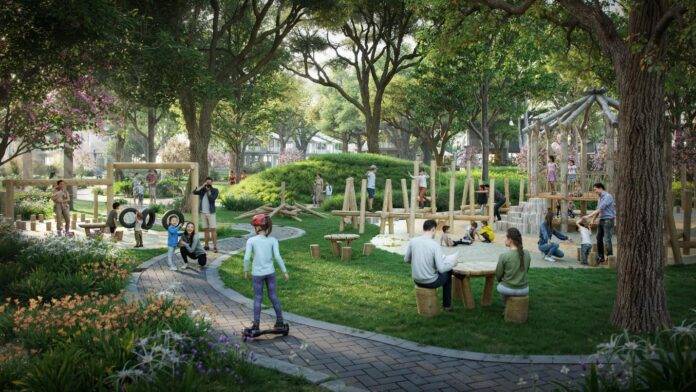The Eco Retreat’s Impact on the Three Pillars of PQ, IQ, and EQ
Starting with the three pillars of PQ (physical health), IQ (intellectual ability), and EQ (emotional intelligence), we believe that these form the fundamental building blocks for deeper personal development. This implies that to enhance oneself, each individual must first prioritize their physical well-being, which will, in turn, foster intellectual growth and improved emotional management skills.
At Eco Retreat, we design generation-specific pathways to nurture and enhance these three pillars. For children, our approach is primarily focused on nourishment and development. For teenagers, we shift towards encouragement and advancement. Meanwhile, for adults and the elderly, our methods are geared more towards therapy, restoration, and holistic rejuvenation.
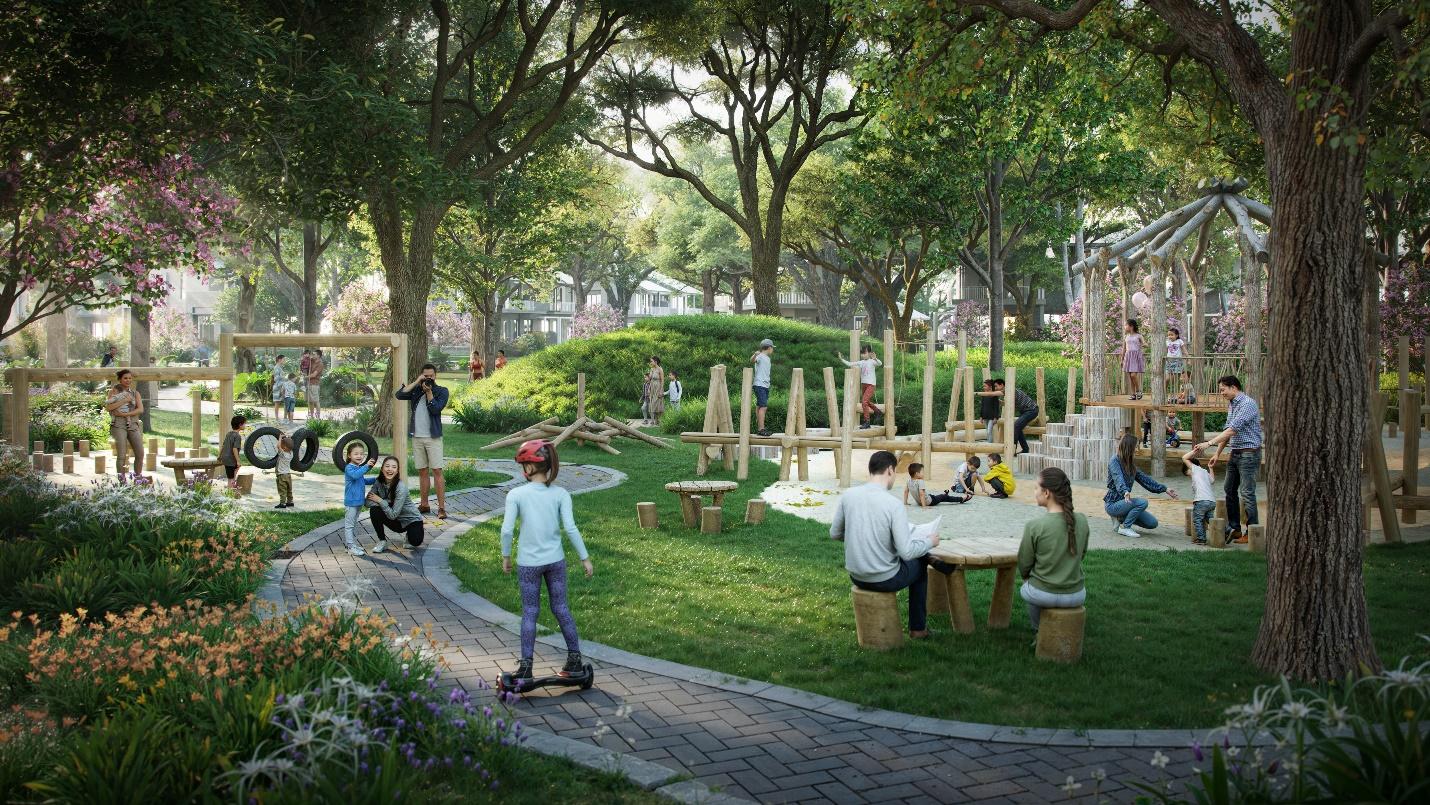
Nurturing children’s health, intellectual, and emotional development
Here, young children will be nurtured in their health, mental well-being, and emotional growth through various nature-immersed gardens. These include vitamin gardens that offer exposure to wholesome sunshine; reading gardens that encourage deep thinking and sensory experiences; and play gardens that allow children to connect with peers and develop emotionally through collective activities.
The Center for Research in Environmental Epidemiology in Barcelona tracked 2,500 urban children over a year and found that students with greener schools performed better on memory and attention tests. The study linked the amount of greenery around schools to improved cognitive development in students.
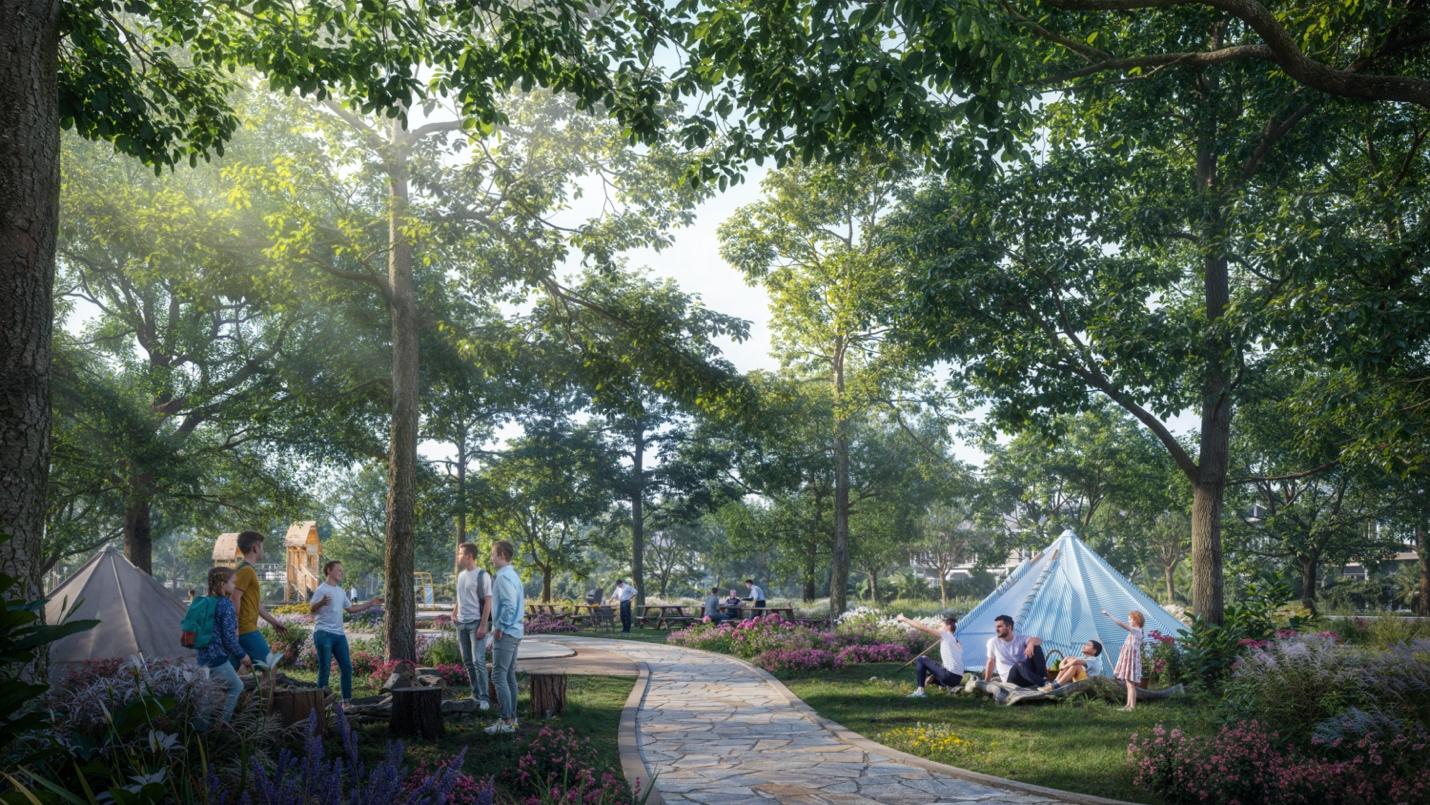
A Stimulating Environment for Teenagers
For teenagers, our approach to enhancing the three pillars becomes more intense, catering to their need for physical activity, emotional expression, and identity formation. In addition to the 8km therapeutic waterside forest trail, teenagers can also retreat to dedicated spaces such as the sports garden, which promotes physical endurance and the camping garden, which fosters peer connections, mutual learning, and emotional management.
Eco Retreat’s Influence on SQ, CQ, and AQ
A happy community is built upon individuals who experience joy and well-being in their lives. At Ecopark, we believe that people are the measure and heart of our endeavor to create an emotionally rich living space. Therefore, we extend our focus beyond the individual development of Eco Retreat residents to include SQ (social skills) and CQ (creative abilities).

A Garden of Experiences for Eco Retreat Residents
The open spaces at Eco Retreat facilitate social connections and enhance residents’ SQ. Children, adults, and the elderly can easily find community and social engagement through activities in these natural settings, where nature acts as a catalyst. Furthermore, CQ is significantly enhanced when individuals immerse themselves in nature, as it directly influences the autonomic nervous system, allowing the brain to enter a state of “retreat,” improving focus, observation, and creative thinking.
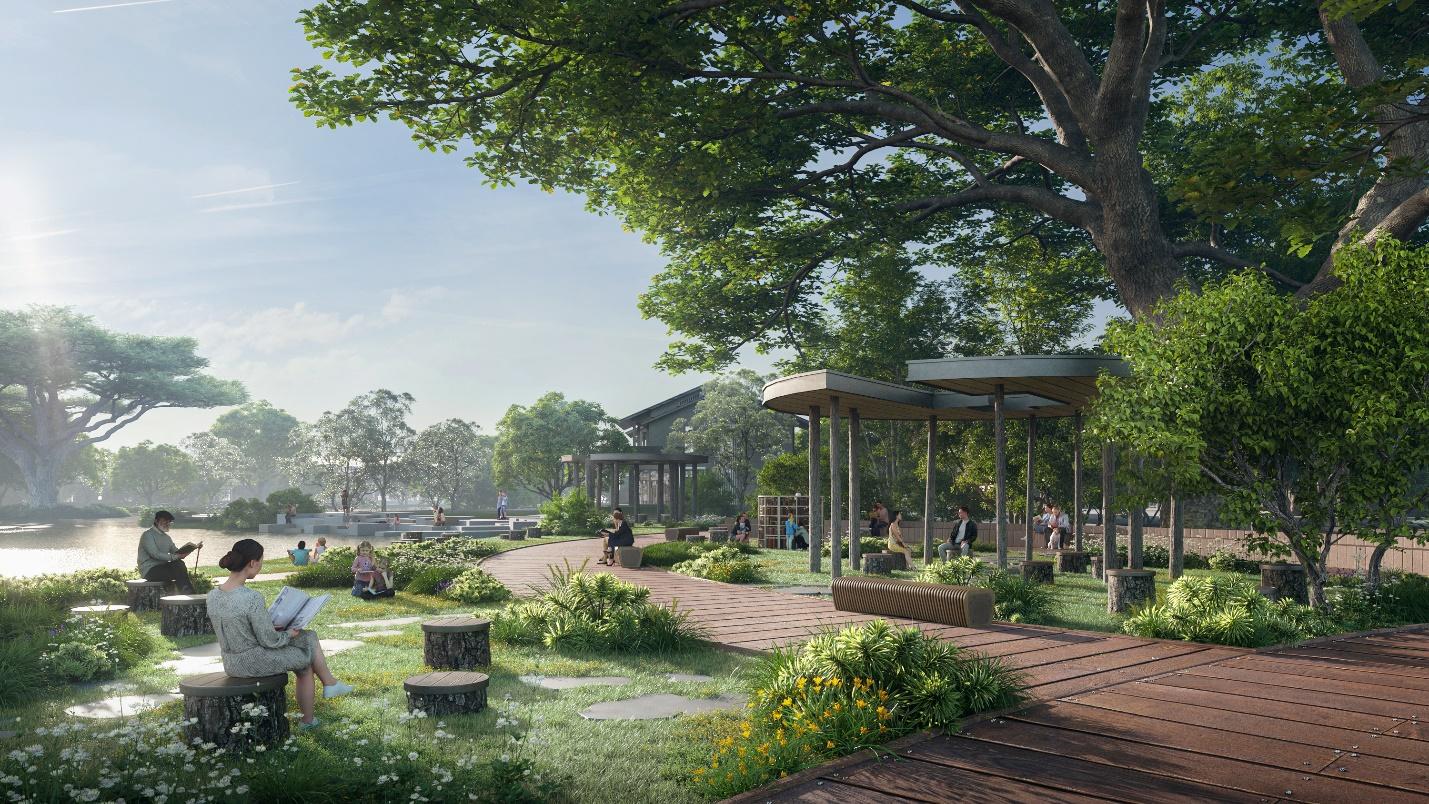
Immersing in Nature Enhances Creativity and Mental Clarity
A 2012 study by the University of Kansas found that participants who spent a few days in nature displayed a 50% improvement in creative problem-solving skills. This is why some of history’s greatest thinkers, from Henry David Thoreau to Steve Jobs, often turned to nature for inspiration.
At Ecopark Hung Yen, the inaugural development by Ecopark’s founder, the harmonious and nature-connected living environment has attracted residents from over 30 nationalities, including the UK, France, the USA, Brazil, Canada, Germany, South Korea, Russia, Japan, Singapore, and Thailand.
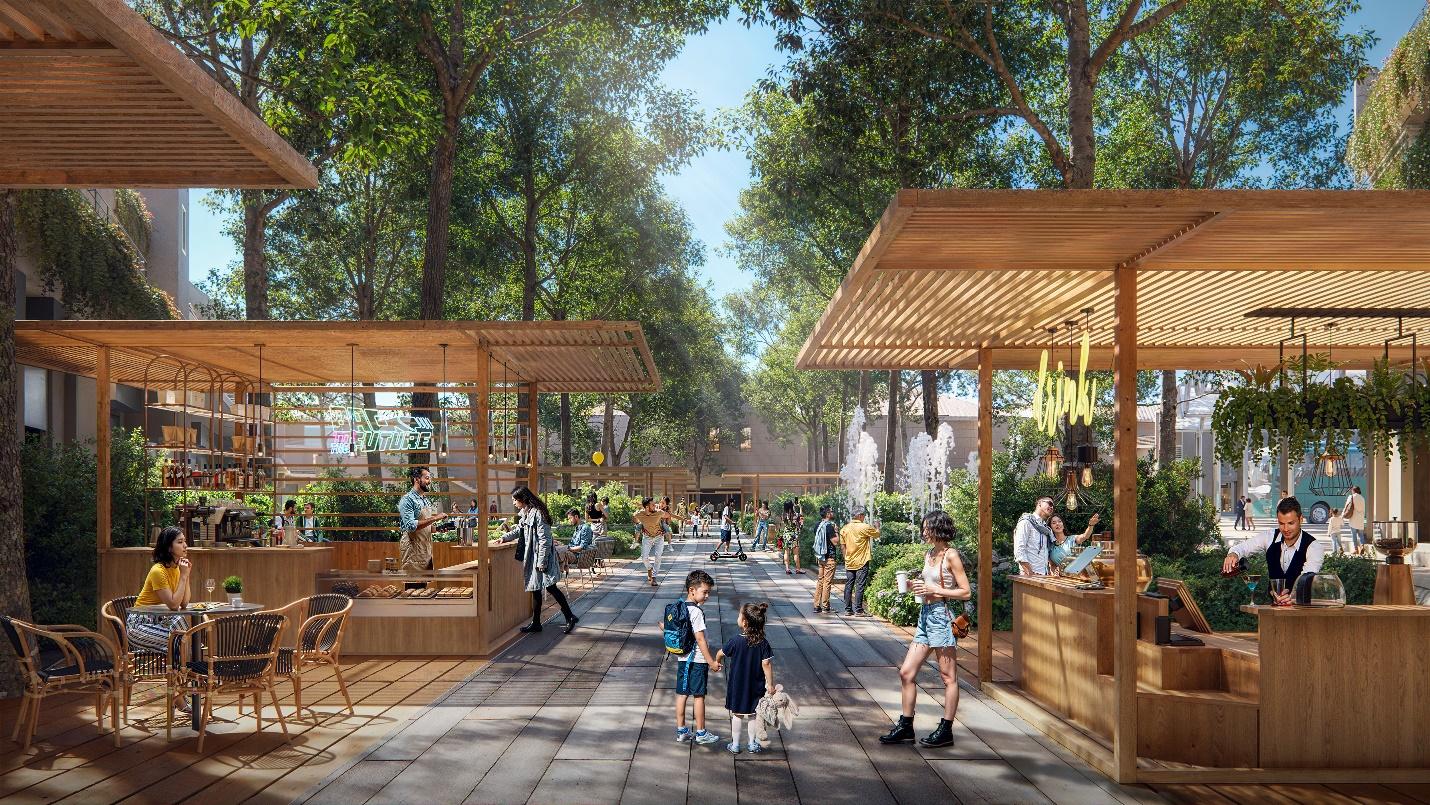
A Vibrant and Community-Centric Eco Retreat
Another advantage of Eco Retreat’s green and nature-respecting environment is its positive impact on AQ—adversity quotient. AQ is considered a crucial factor in shaping one’s life during pivotal moments. Research and experience show that individuals with robust physical and mental health, strong social connections, and emotional mastery tend to possess the inner strength to embrace challenges and adapt to adversity.
A study by Edward L. Deci, a psychology professor and director of the Human Motivation Program at the University of Rochester in 2000, along with Richard J. Ryan, found that when individuals are placed in an empowering environment, such as natural spaces, they develop a sense of autonomy and improve their adversity quotient. The sense of comfort and freedom that nature provides helps individuals persevere through difficulties and trials.
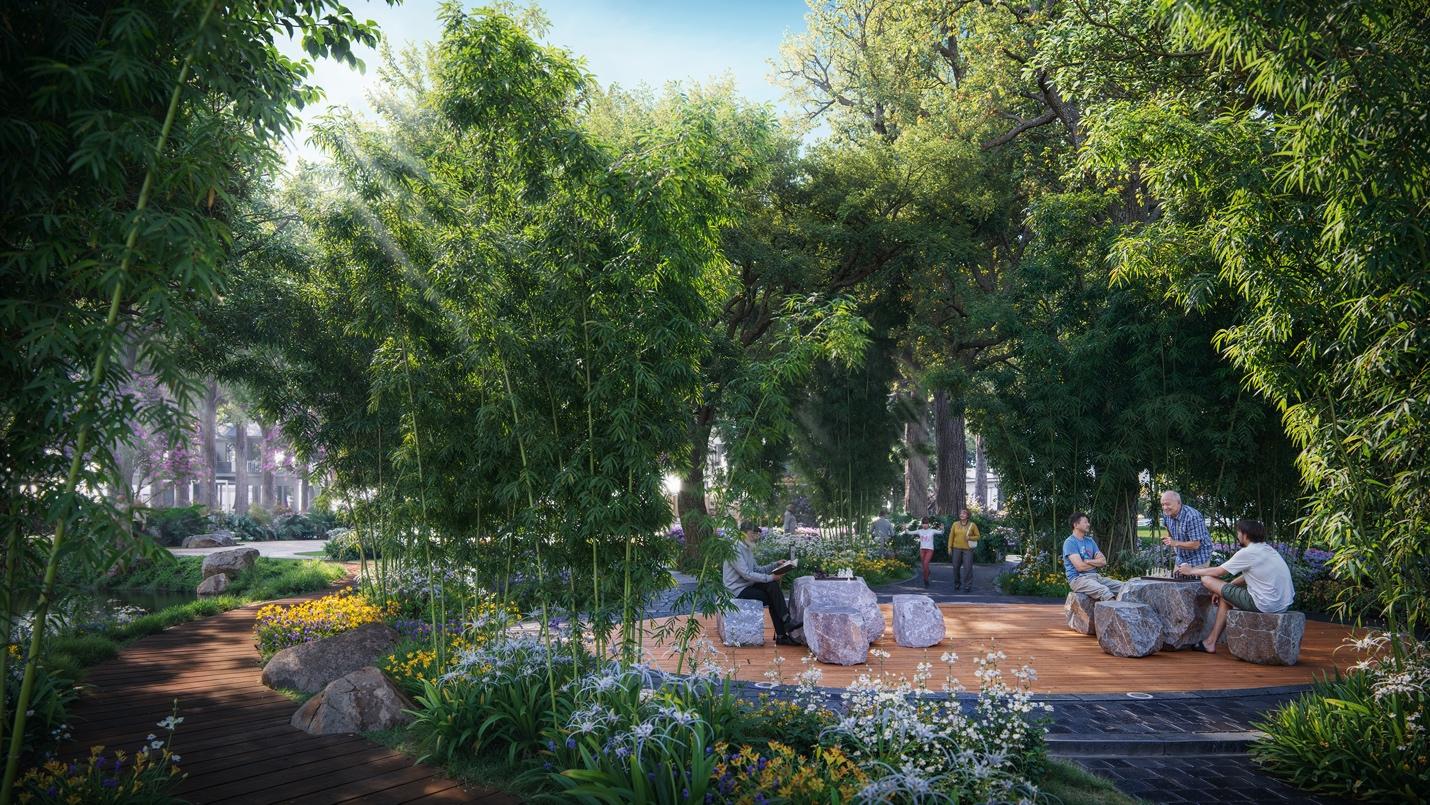
A Relaxing Garden for the Elderly at Eco Retreat
A 2006 study by Professor David Strayer and his colleagues also suggested that when individuals experience nature, they can quickly restore their mental energy, helping them maintain their adversity quotient and focus on long-term or persistent tasks. Natural spaces aid in rejuvenating physical and mental strength, thereby enhancing AQ.
Dr. Qing Li, a professor at the Nippon Medical School in Tokyo, who has spent decades researching the physiological effects of forest environments on the human body, affirms that outdoor activities in forest and natural settings not only improve physical health but also significantly enhance mental toughness and adversity quotient. The authors argue that exposure to nature helps develop stress resilience and the ability to face challenges.
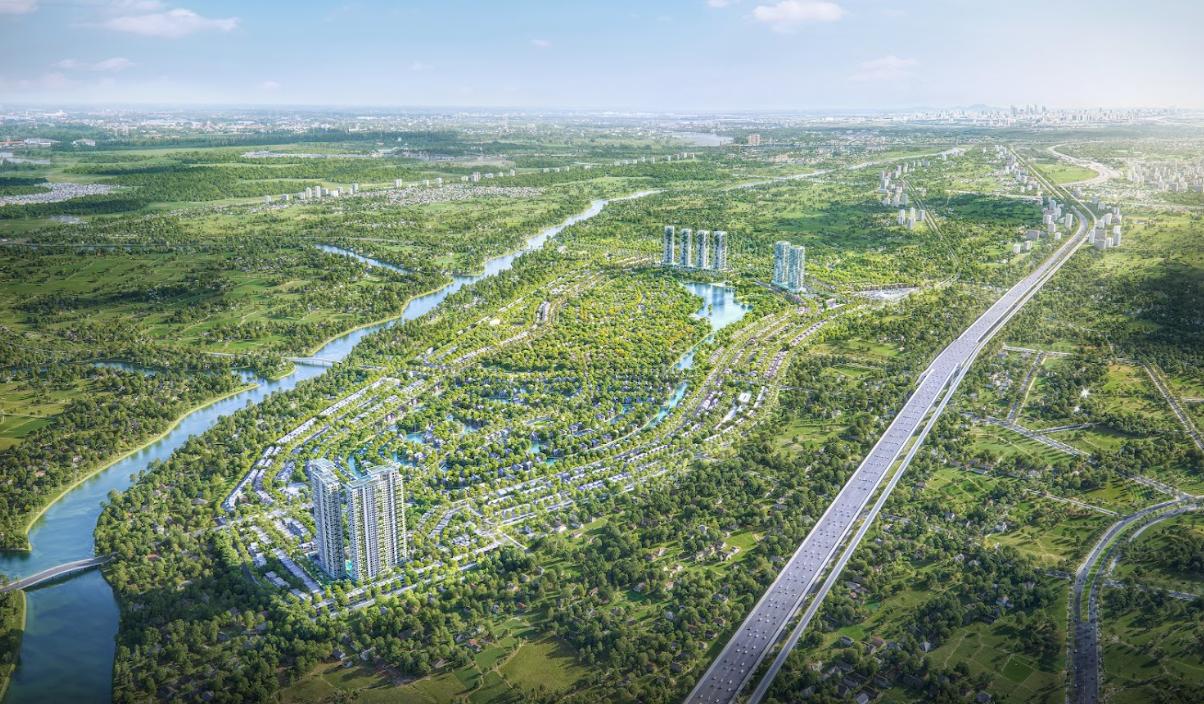
Eco Retreat, located at the Western Gateway of Ho Chi Minh City, is just a 30-minute drive from Bach Dang Wharf.
The retreat circle model at Eco Retreat, which promotes the development of PQ, EQ, SQ, CQ, IQ, and AQ, offers a comprehensive overview of the value of a daily therapeutic, restorative, and regenerative living environment. This proactive approach to nurturing individuals promises a more sustainable community, especially as Vietnam embarks on a new era of national advancement, where holistic and enduring personal development plays a pivotal role.
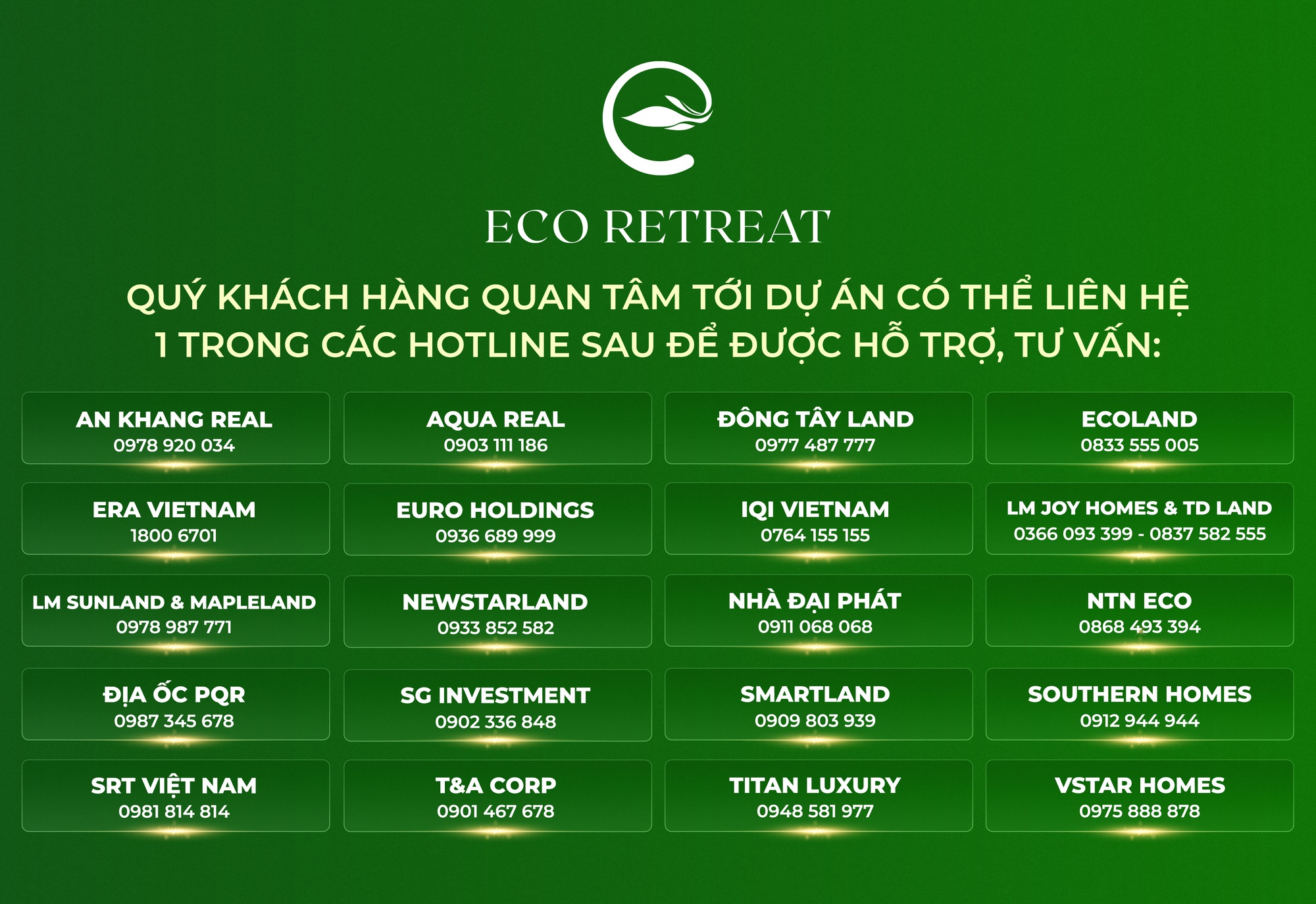



















![[IR AWARDS] June 2025 Disclosure Calendar: Mark Your Dates](https://xe.today/wp-content/uploads/2025/06/HinhT6_01-218x150.png)






